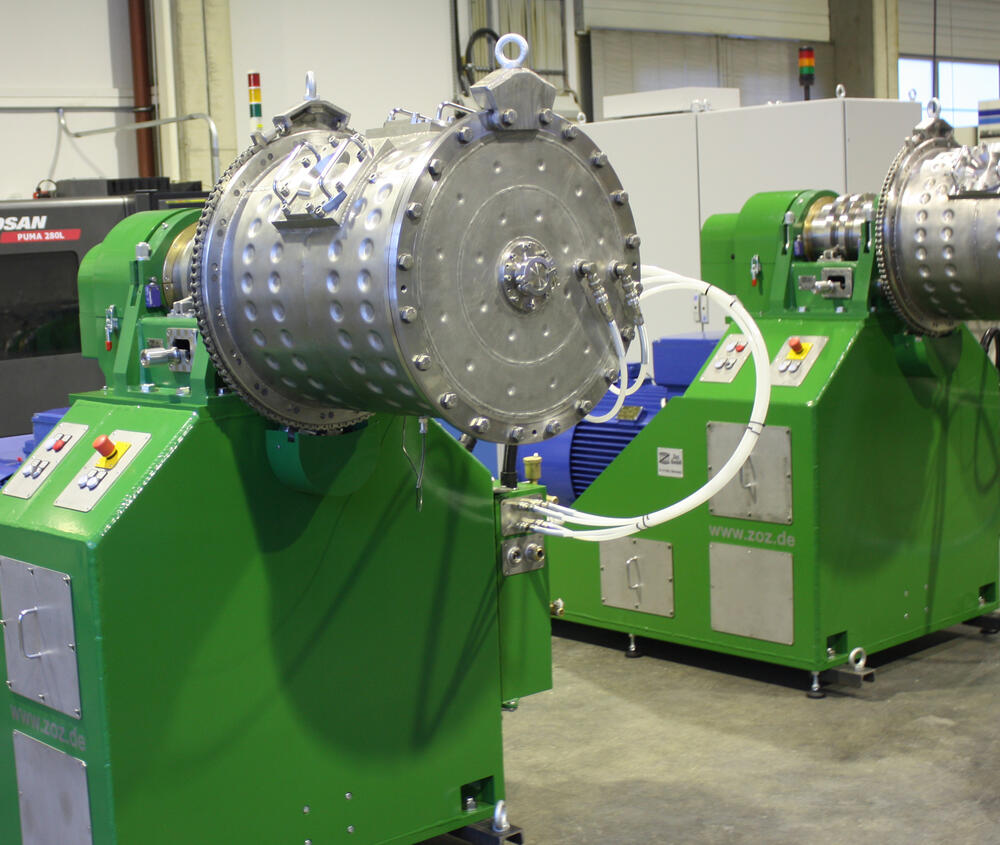Resource-efficient chemical synthesis in ball mills
The mechanical energy from the ball mill replaces solvents in delivering the activating energy required for chemical reactions.
For many synthetic processes in chemical production, solvents are crucial. Through the associated emissions their use represents a danger to health and environment, and is often associated with high consumption of materials and energy. The renunciation of solvents thus represents an essential option for process intensification.
The Friedrich Schiller University of Jena, in cooperation with Zoz GmbH, Fritsch GmbH, the Technical University of Braunschweig, and Evonik Industries AG, has successfully tested solvent-free organic synthesis using planetary ball mills and high energy ball mills, and has developed it further to practical maturity. The project’s goal was the investigation of solvent-free organic synthesis in planetary ball mills on a laboratory scale and the upscaling to a technical scale, with the help of the high-energy ball mill Simoloyer®, for later industrial use.
Model reactions in the Simoloyer®
In Simoloyer® the ground material is rendered finer through shear- and friction procedures, and collision with the grinding balls. This emerging energy is used as activation energy, in order to overcome the »energy threshold« as necessary in chemical reactions. As a result of the project, the »upscaling« leads to both a reduction in energy expenditure and a reduction in environmental impact. Zoz GmbH planes to increase the range of applications of the results while establishing the Simoloyer® technology in industrial processes.
Sustainable, solvent-free synthesis with higher quantitative yield and greater resource efficiency can make a significant contribution to the protection of the environment and to an increase in the economic viability of the processes involved.
Project implementation:
Friedrich-Schiller-Universität Jena
Institut für Technische Chemie und Umweltchemie
07743 Jena
www.ituc.uni-jena.de
Cooperation partner:
Zoz GmbH
57482 Wenden
www.zoz.de
TU Braunschweig
Institut für Partikeltechnik
38104 Braunschweig
www.iPAT.tu-bs.de
Fritsch GmbH
55743 Idar-Oberstein
www.fritsch.de
Evonik Industries AG
63457 Hanau
www.evonik.de
AZ 29622


